30 Things You Had No Idea Could Cause Cancer

It seems like we’re always hearing about new things that can cause cancer, making it hard to know what to believe and what to brush off. But since the National Cancer Institute says that nearly 40 percent of us will be diagnosed with cancer at some point in our lives, it’s important to be aware of the things we might be doing every day that could increase our risk of the disease.
From how you prepare your steaks to where you put your phone when you sleep, we rounded up 30 cancer risk factors you may not know about. Read on to find out what they are—and how you can increase your chances of staying healthy.
READ THIS NEXT: If This Happens to You in the Bathroom, Get Checked for Cancer, Doctors Say.
1
Not managing your stress

According to the National Cancer Institute, while stress doesn’t directly lead to cancer, your body’s response to that stress—things like increased blood pressure, rapid heart rate, and elevated blood sugar levels—can lead to cancer if left untreated.
In recent years, they write, researchers have also discovered links between psychological stress and cancer. However, this could be because people experiencing chronic stress are more likely to smoke, overeat, be sedentary, and drink alcohol—all habits that are associated with an increased risk of cancer.
2
Forgetting to floss
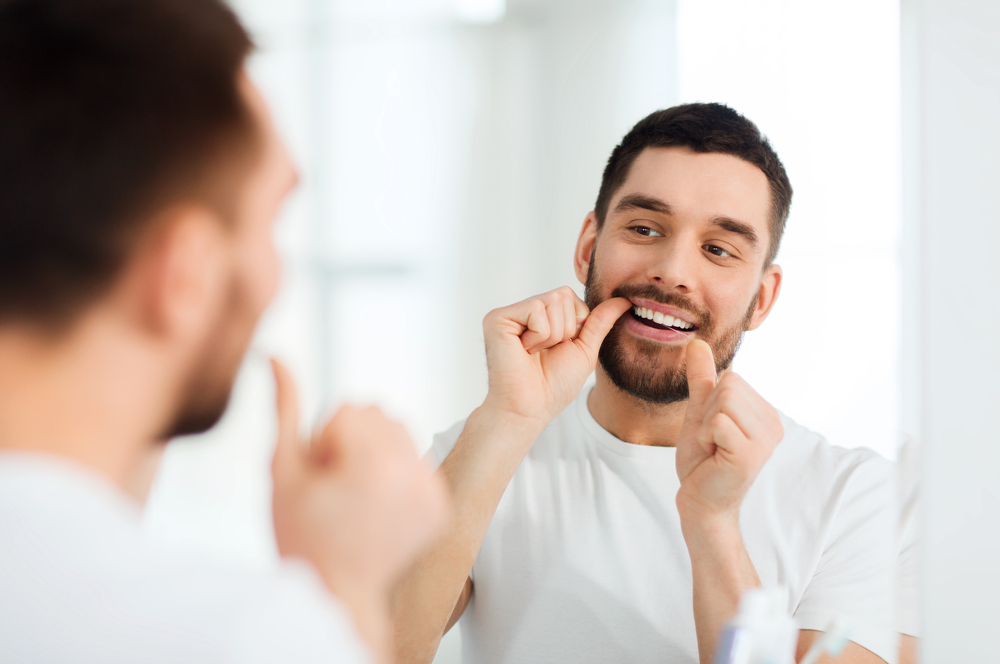
Are you keeping up with your oral hygiene? Brushing and flossing regularly are essential to staying healthy. A 2018 study published in the Journal of the National Cancer Institute found that gum disease is associated with a 24 percent increase in both lung and colorectal cancer, meaning that taking care of your mouth benefits your whole body.
3
Sitting too much

Want to lower your risk of cancer? Move your body!
In a 2014 review published by the Journal of the National Cancer Institute, German scientists analyzed data from 43 studies and found that for every two additional hours of sedentary behavior a day, a person’s risk of colon cancer, endometrial cancer, and lung cancer increased by 8 percent, 10 percent, and 6 percent respectively.
4
Sleeping with the TV on
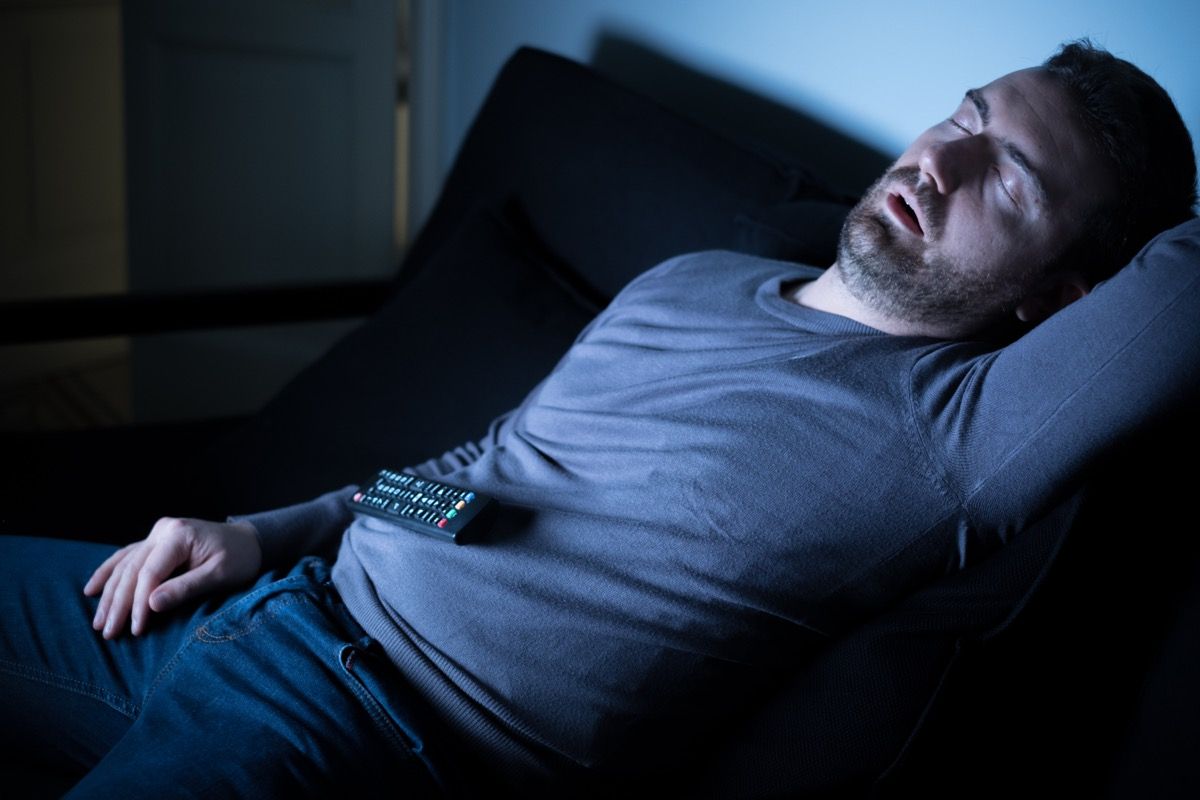
Even if the sound of your favorite late-night show is the only way you can fall asleep, you might want to bid adieu to this bad habit. A 2010 analysis in the journal Environmental Health Perspectives found that the artificial light that emanates from your TV screen is linked to both breast and prostate cancer.
“Light at night is likely to be one of a number of factors that contributed to the increase in breast cancer over the last few decades,” Les Reinlib, program director of the National Institute of Environmental Health Sciences, told the journal.
5
Using scented candles
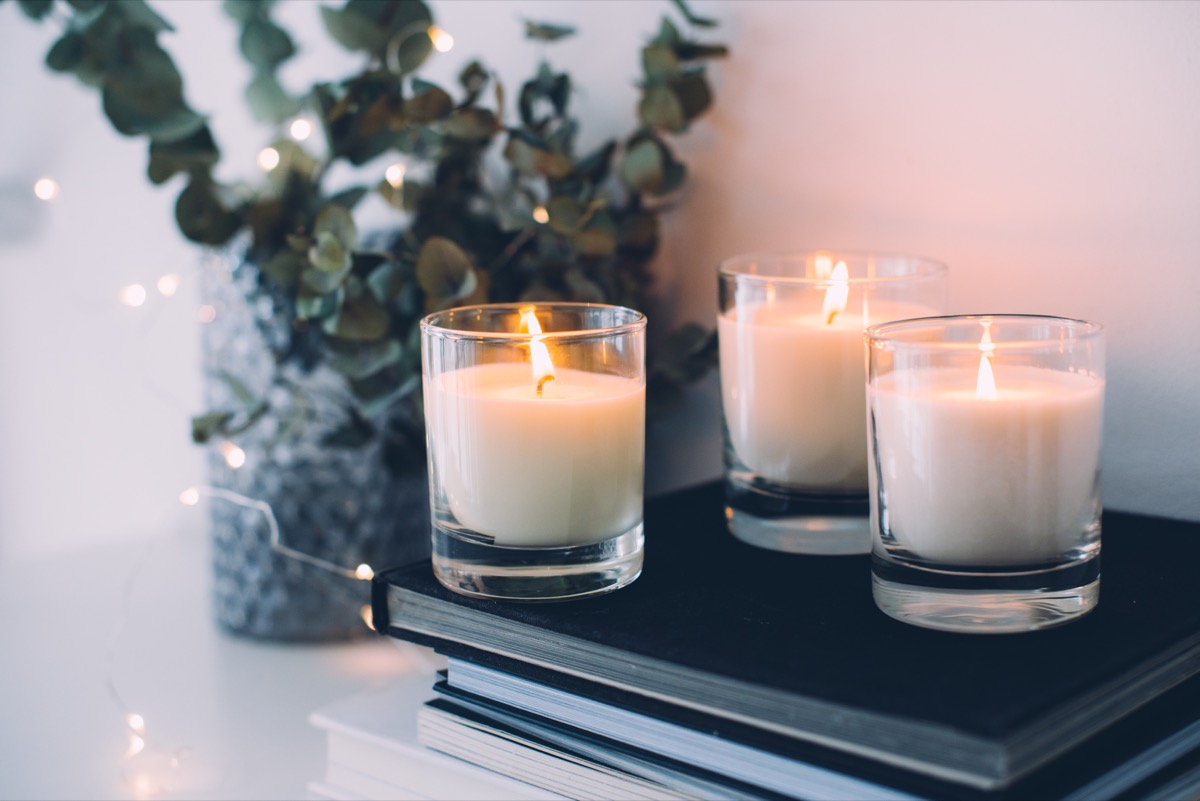
There’s something so soothing about burning a scented candle—but unfortunately, they may also do a whole lot of damage to your body. According to the United States Environmental Protection Agency (EPA), scented candles are full of potentially dangerous chemicals like benzene and toluene, and breathing them in regularly could increase your risk of cancer.
“For a person who lights a candle every day for years or just uses them frequently, inhalation of these dangerous pollutants drifting in the air could contribute to the development of health risks like cancer,” South Carolina State University chemistry professor Ruhullah Massoudi told HuffPost.
READ THIS NEXT: Men Who Eat This Are at 29 Percent Higher Risk of Colorectal Cancer, New Study Finds.
6
Burning incense
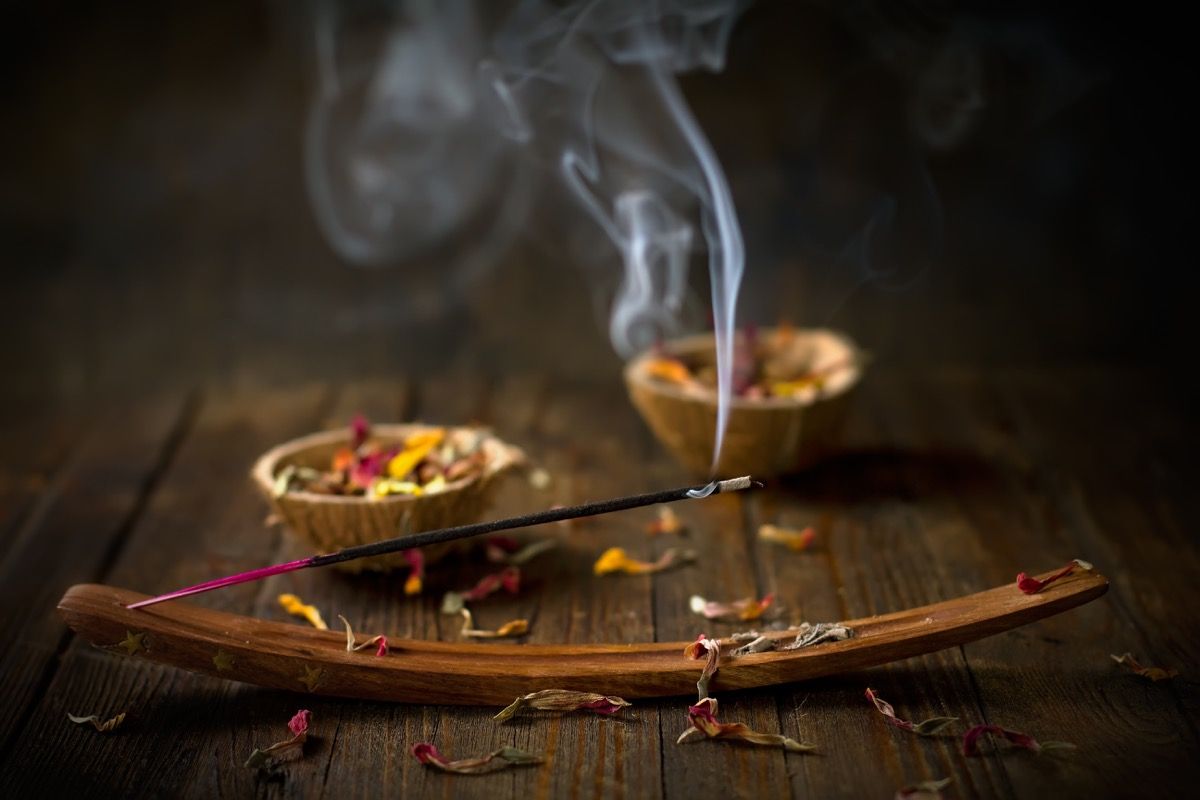
According to an oft-cited 2008 study published in the journal Cancer, the smoke created from burning incense could cause cancer, too.
In the study of more than 60,000 cancer-free individuals between the ages of 45 and 74, researchers discovered that the long-term use of incense was associated with an increased risk of squamous cell carcinoma of the respiratory tract, a type of lung cancer. So while the occasional sandalwood incense stick might be nice every once in a while, making a daily habit out of this scented ritual could do your body major harm.
7
Using certain laundry detergent
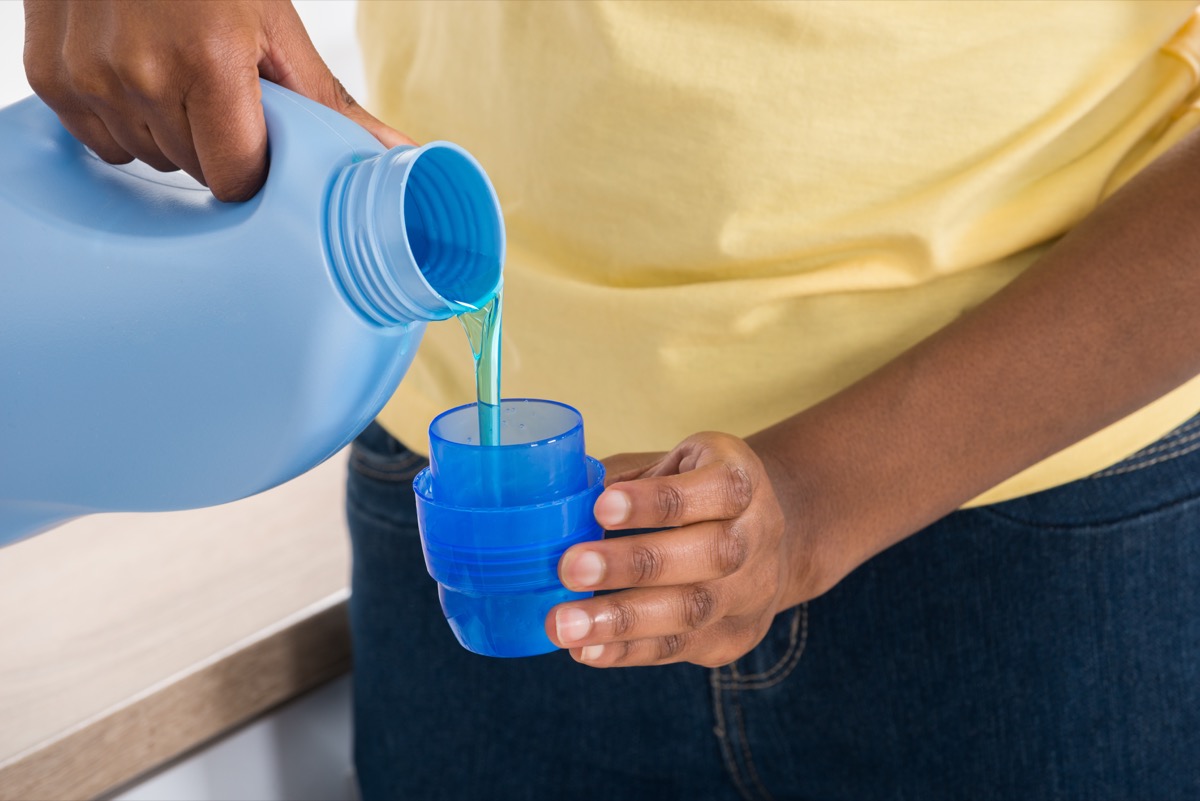
Doing your laundry seems like a healthy habit, right? It turns out, that might depend on what detergent you use.
According to the Environmental Working Group, some laundry detergents contain 1,4-dioxane, a chemical that could potentially be cancerous. In past research, animals exposed to the chemical had higher rates of liver tumors than those who weren’t exposed. So be sure to choose your detergent wisely.
8
Going to the dry cleaner
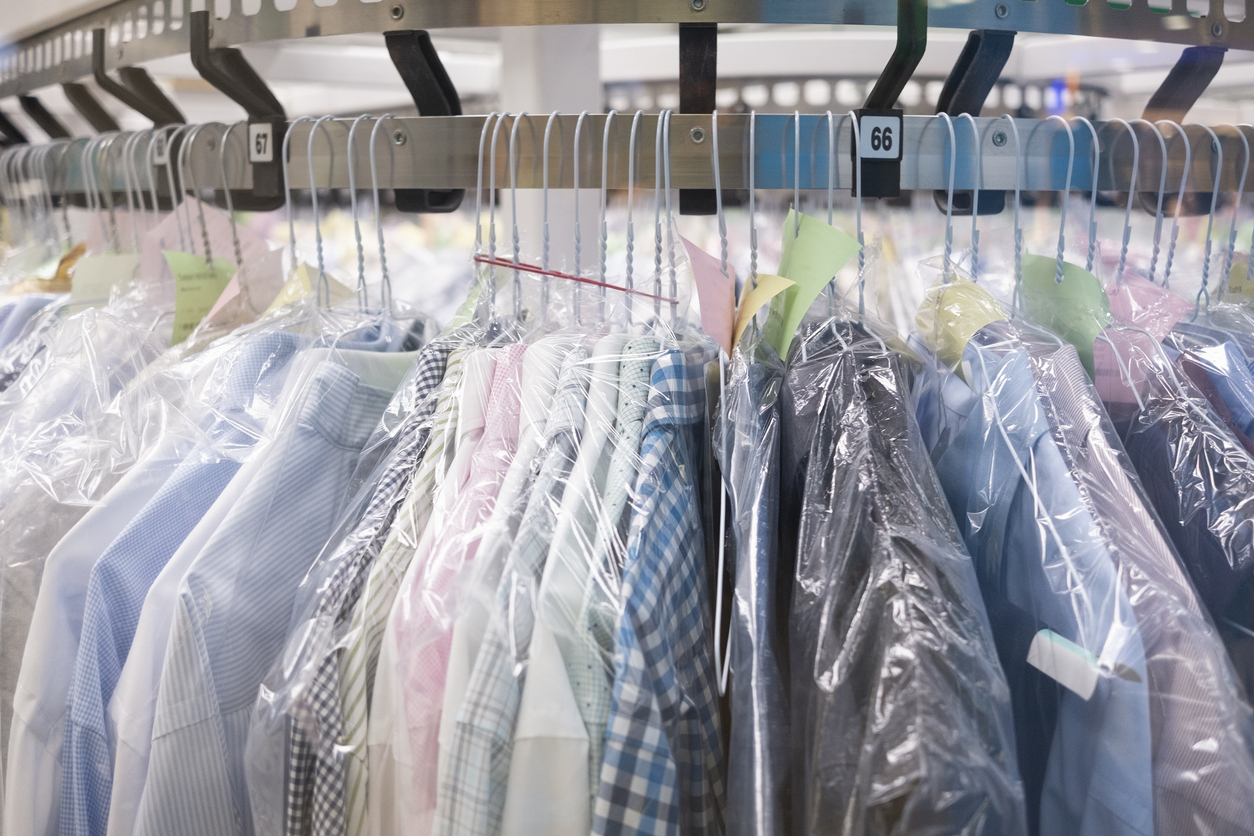
When it comes to getting your clothes clean, taking them to the dry cleaner may not be any better for your health than washing them with chemical-laded detergent at home. Reports from the EPA have found that perchloroethylene or “perc”—a chemical used by the majority of dry cleaners in the U.S.—could cause leukemia, as well as both liver and kidney cancers.
What to do? Look for a business that doesn’t use harmful chemicals, or skip out on the dry cleaner altogether.
9
Pumping gas

Most of us fill up our car’s tank on a regular basis. But if you’ve ever tried to put just a little bit more gas in after the safety nozzle clicks off, don’t make it a habit.
The EPA notes that putting extra fuel in your car could mess with the pump’s vapor recovery system, potentially releasing cancer-causing chemicals like benzene into the air you breathe.
10
Working the night shift
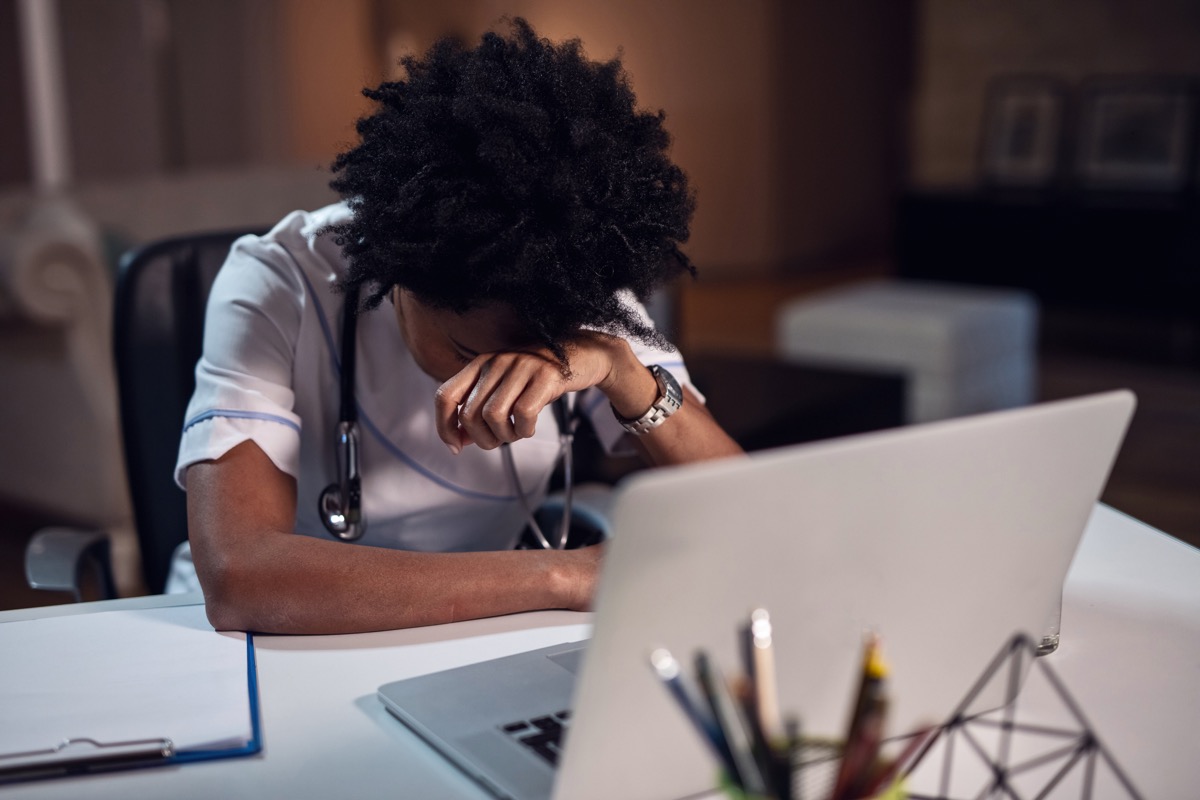
According to the 2015 National Health Interview Survey–Occupational Health Supplements survey (NIOSH), approximately 11 million U.S. adults work at night. And though it might not seem like working when it’s dark out and sleeping when it’s light would do any major bodily harm, a 2013 study published in the British Medical Journal found that the graveyard shift can increase a person’s risk of breast cancer, most likely due to melatonin suppression.
11
Not drinking enough water
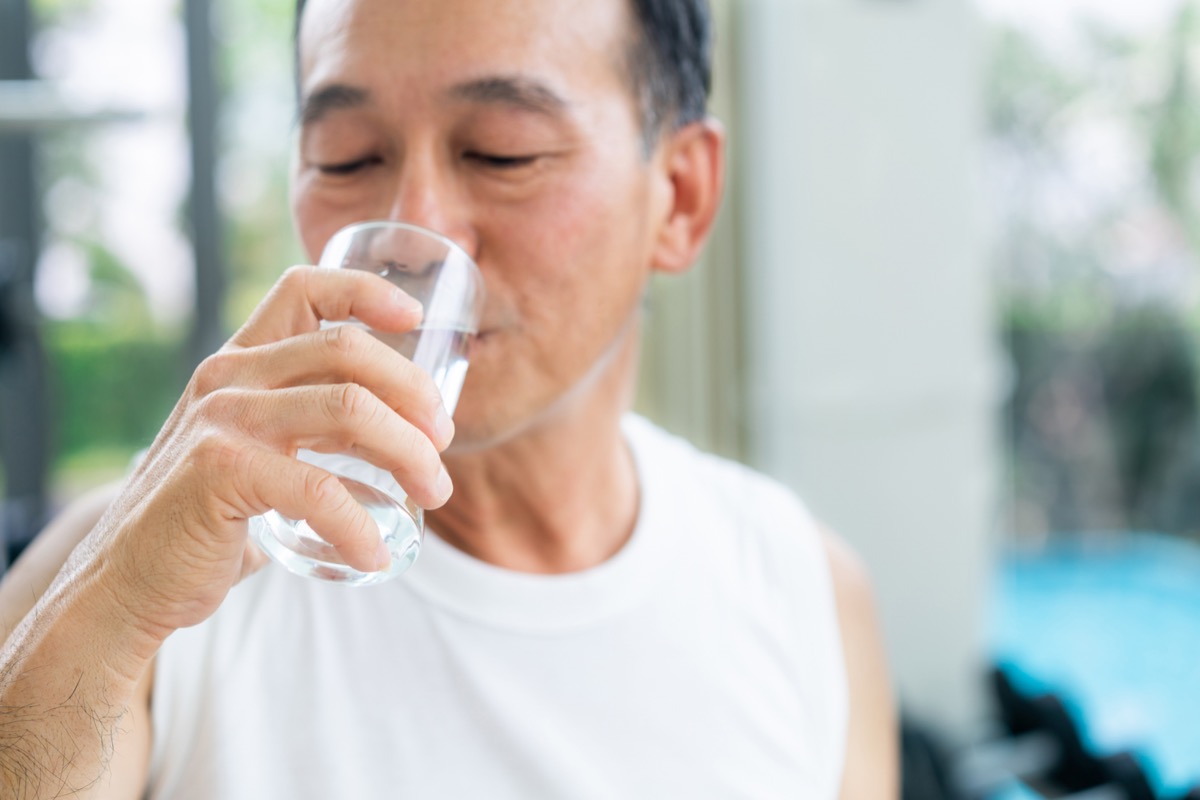
Drinking plenty of water throughout the day helps keep your whole body working properly. It also dilutes harmful substances in your urine, potentially helping to reduce your risk of bladder cancer, according the Cleveland Clinic. So drink up!
12
Using a plastic water bottle
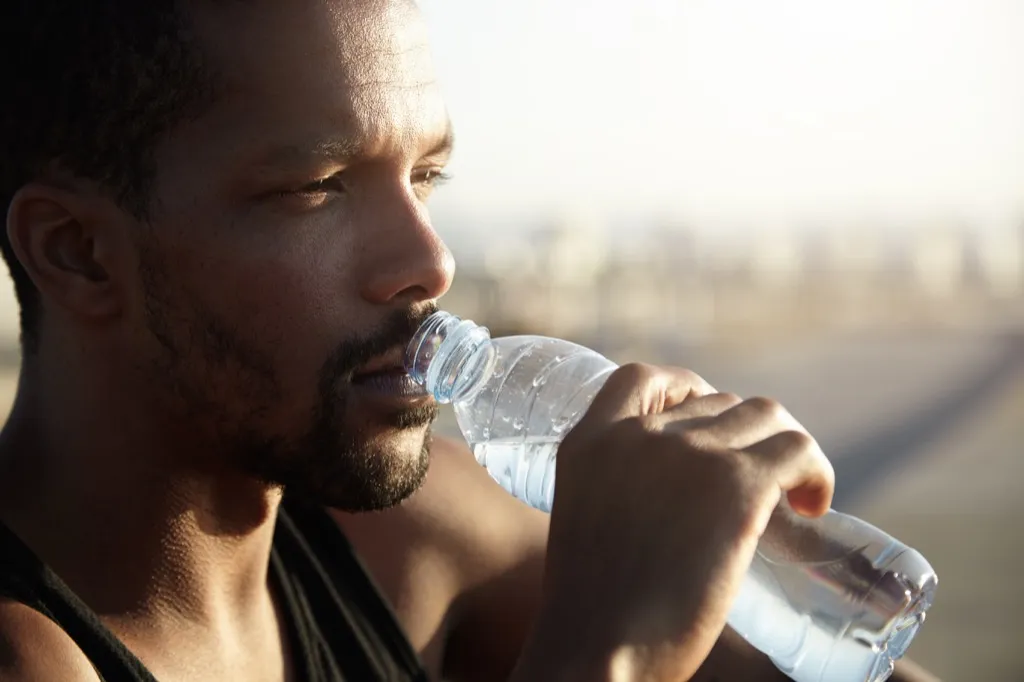
Drinking water is great for your health—but if your go-to water comes from a plastic bottle, you might want to switch to something that’s glass, steel, or ceramic.
According to the nonprofit organization Breastcancer.org, research suggests that plastic beverage containers can contaminate liquids with potentially harmful chemicals like BPA, a weak synthetic hormone that can mess with your body’s hormonal balance and increase your risk of breast cancer. The Mayo Clinic reports that opinions are still mixed on whether plastic bottles actually cause cancer or not, but you might be wise to steer clear, just in case.
13
Not eating enough fruits and veggies
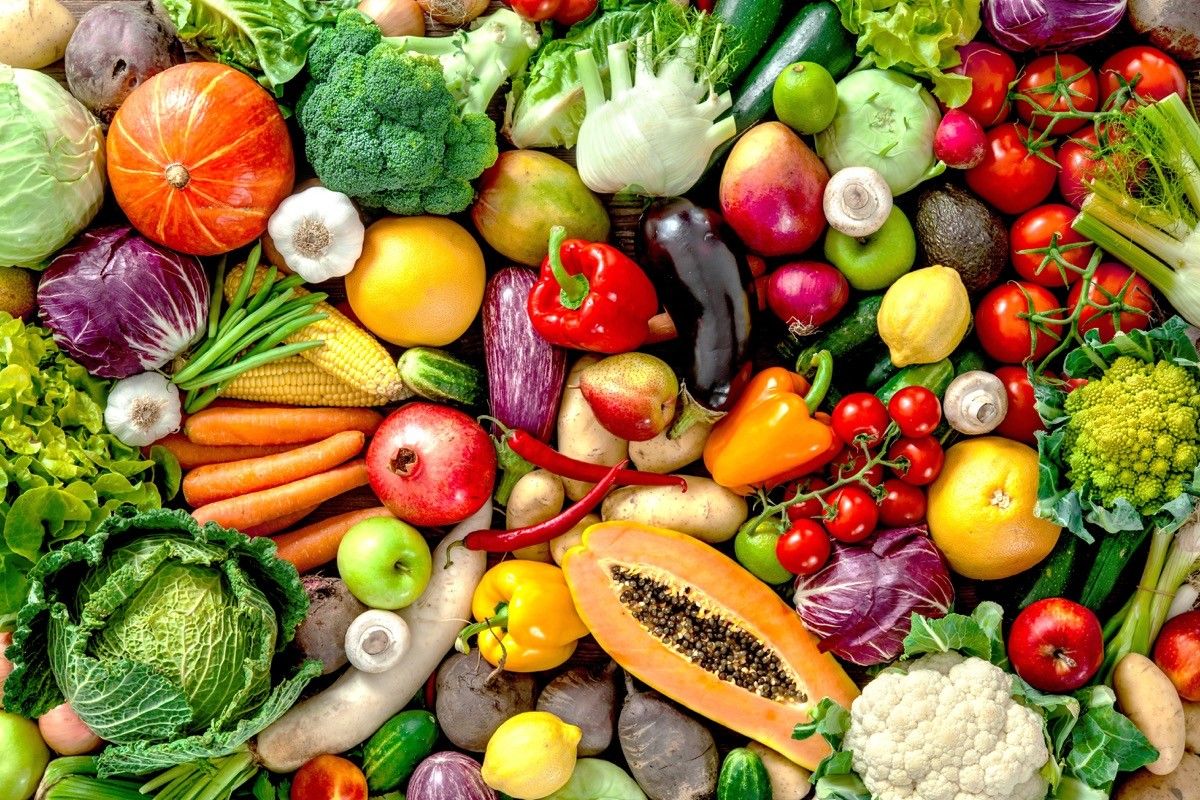
Not a fan of fresh produce? According to Harvard’s School of Public Health, eating a variety of fruits and vegetables on a daily basis has been shown to lessen your chances of developing cancer—so it might be worth it to find a fruit or veggie or two that you enjoy.
14
Eating too much rice
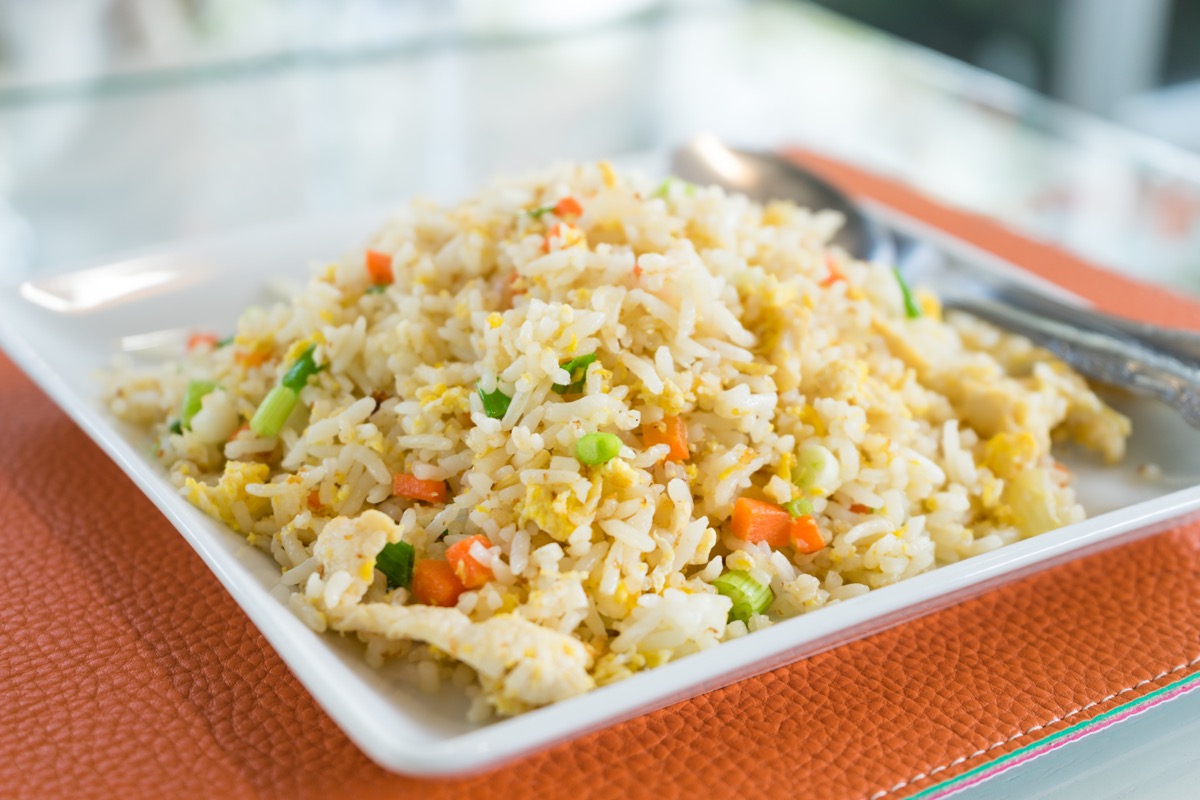
A 2018 research analysis published in the International Journal of Environmental Research and Public Health found that a very credible threat to your overall health might be lurking in your rice: arsenic. Although the levels of arsenic can vary in rices across the world, any product that contains rice—including cereal—could potentially spike your cancer risk.
15
Undergoing hormonal replacement therapy
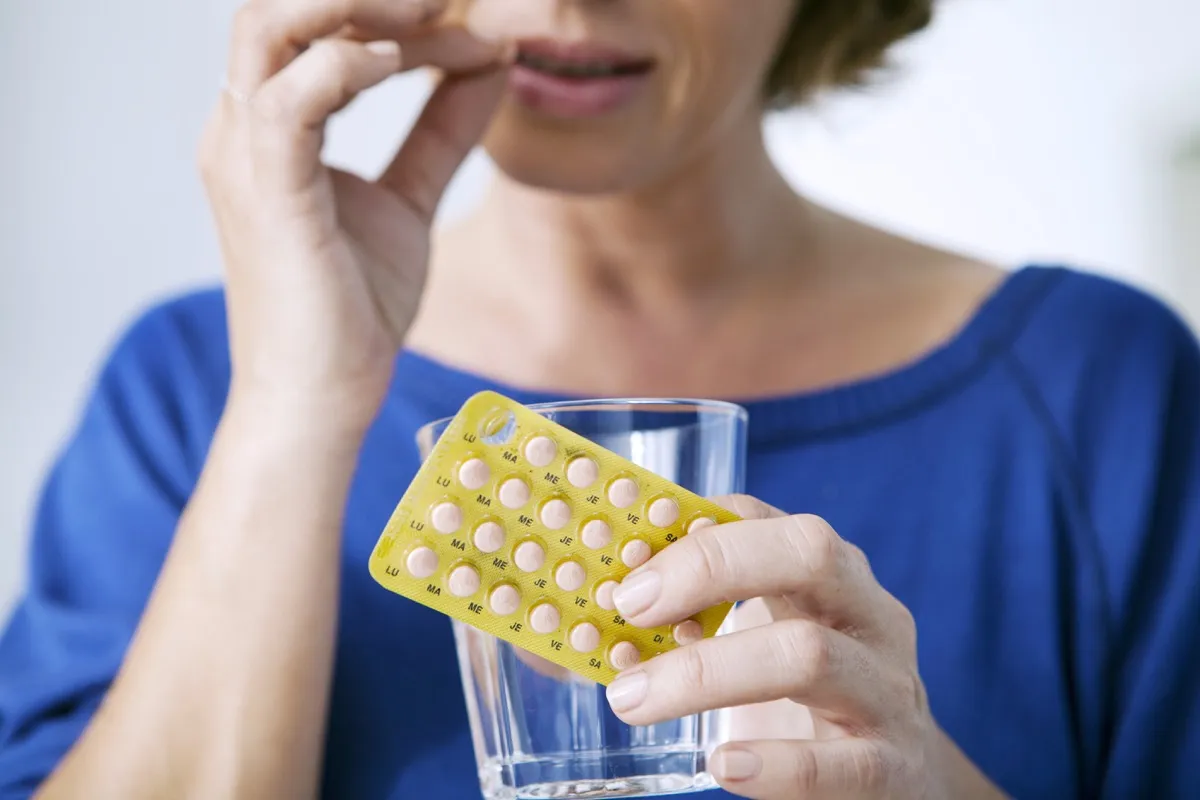
According to an oft-cited 2002 study published in the Lancet journal, strong evidence shows a link between hormone replacement therapy (HRT)—often used by women during menopause—and an increased risk of a breast cancer diagnosis. With that in mind, be sure to discuss all the risks of HRT with your doctor in order to decide what’s best for you.
For more health news sent directly to your inbox, sign up for our daily newsletter.
16
Taking too many supplements
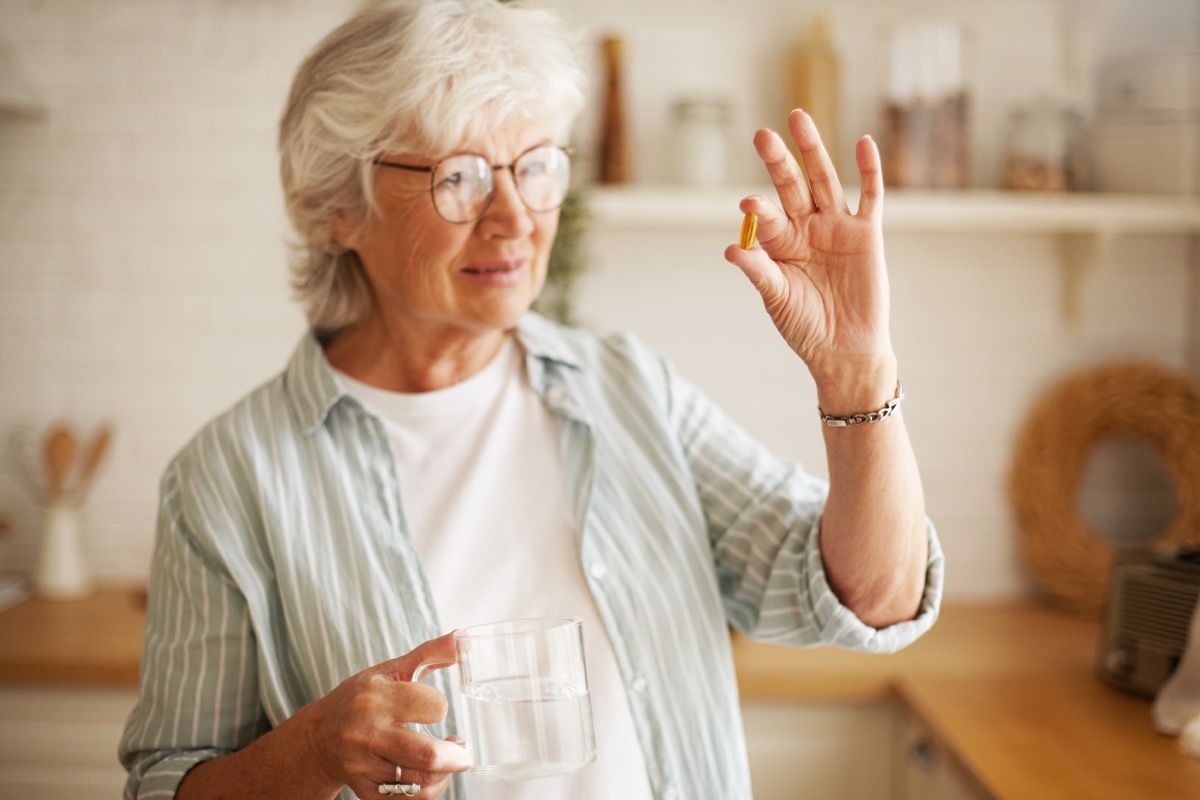
Though taking the right dose of daily supplements may be beneficial to your health, a 2015 study from the University of Colorado Cancer Center suggests that consuming more than the daily recommended dose of any supplement could lead to cancer. Specifically, the study discovered that even taking more than the recommended amount of beta carotene supplements increased lung cancer risk by 20 percent.
17
Eating charred meat

Some people prefer their meat charred. The issue with this, however, is that cooking meat at high temperatures can form chemicals that cause changes in DNA—and these changes can increase your risk of cancer, according to the National Cancer Institute.
For this reason, if you do cook meat, it’s best to avoid overcooking it. Even better, ditch the animal product altogether: A 12-year study published in the journal Nature in 2009 found that vegetarians had a lower incidence of cancer than meat-eaters.
18
Eating processed meat
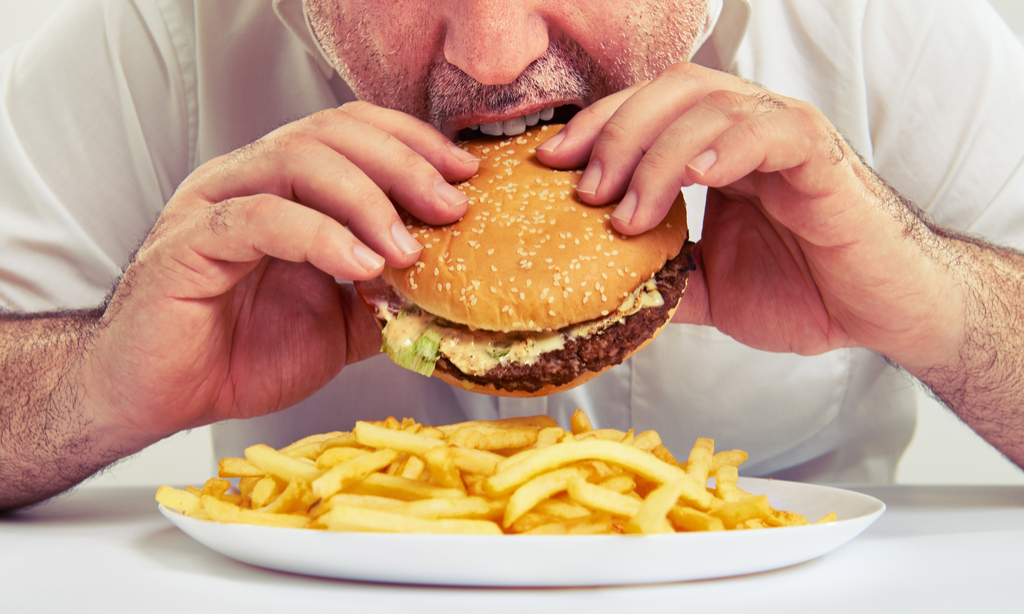
Veggie dogs might be the safest summer BBQ option when it comes to preventing cancer. In 2015, the International Agency for Research on Cancer officially classified processed meat as a carcinogen, noting that eating just 1.8 ounces a day can increase your risk of colorectal cancer by 18 percent.
19
Drinking alcohol
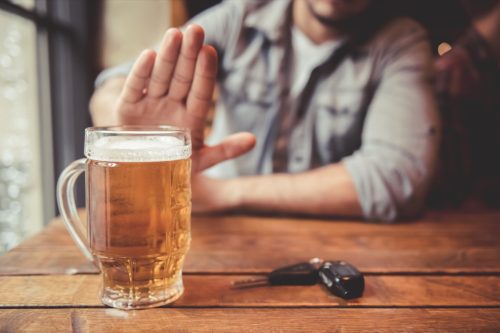
Although studies have come to conflicting conclusions regarding how much alcohol is safe to drink, the American Cancer Society says alcohol consumption is linked to a higher risk of throat, liver, colon, and breast cancer, among others.
20
Making microwave popcorn

Sure, it’s quick, easy, and delicious, but microwave popcorn could also be hazardous to your health.
Microwave popcorn bags used to contain perfluorinated compounds (PFCs), which help resist grease, so oil won’t seep through the bags, Healthline explains. The problem is that PFCs break down into a chemical that may cause cancer, called perfluorooctanoic acid (PFOA). And while manufacturers removed PFCs from their packaging in 2016, under orders from the U.S. Food & Drug Administration (FDA), Healthline writes that dozens of new chemical additives have sprung up since then—and little is known about their safety.
21
Using artificial sweeteners
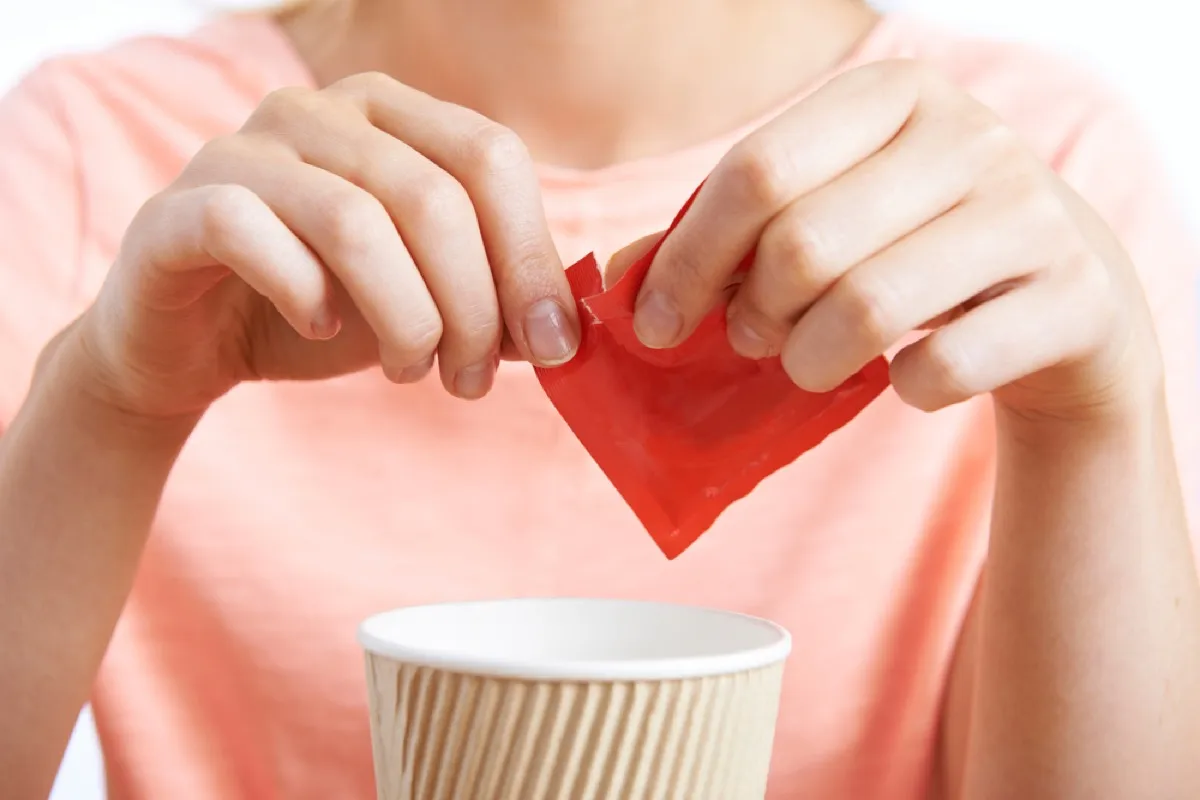
You might want to swap out your artificial sweeteners for something less harmful.
The National Cancer Institute says that while conclusive links haven’t been established between the consumption of artificial sweeteners and cancer, studies conducted on animals have found that common substitutes like saccharin, aspartame, sucralose, and cyclamate can lead to cancer of the bladder and brain, plus lymphoma and leukemia.
22
Drinking diet soda

While drinking any kind of soda may pose certain risks to your health, it’s diet soda, with its copious amounts of aspartame, that has been shown in multiple studies to lead to blood-related cancers, according to the National Cancer Institute.
For the sake of your health, it might be best to indulge in the occasional full-sugar soda—and stick to water as much as possible.
23
Wearing deodorant
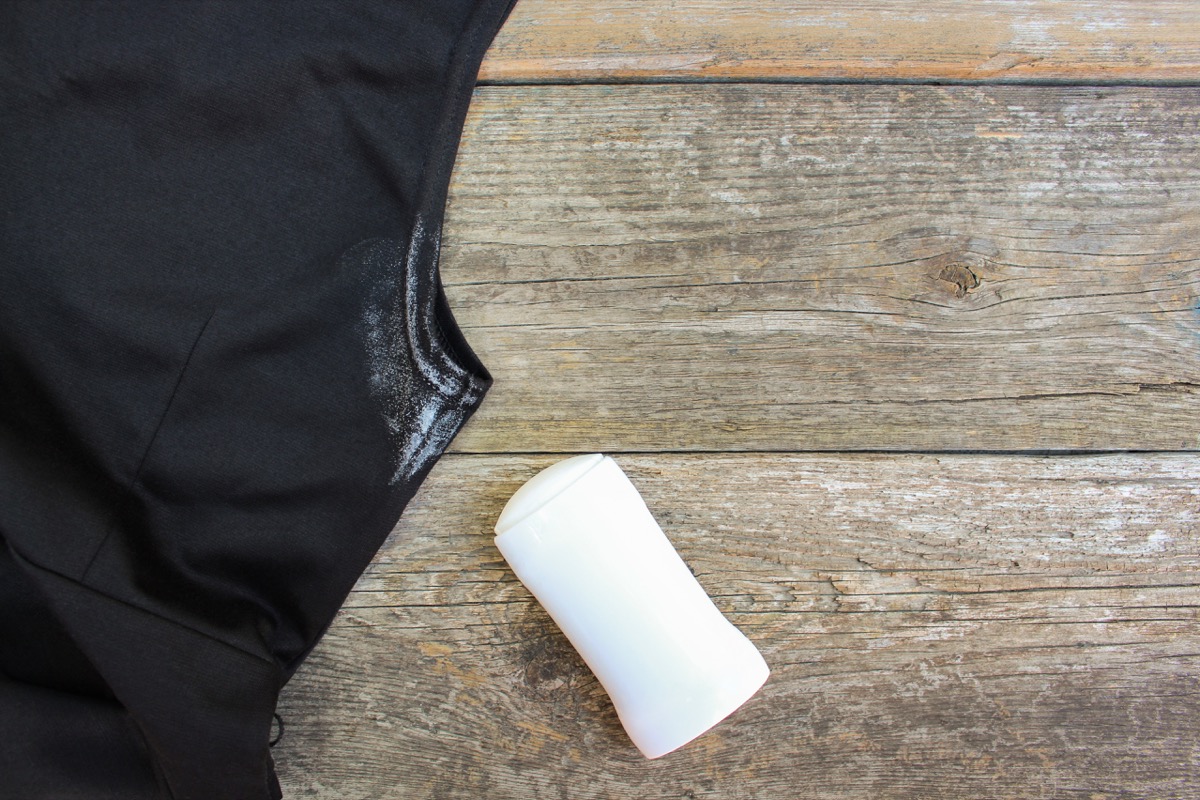
If you haven’t ventured into the world of natural deodorants yet, this might convince you to give them a try: Although the American Cancer Society says no clear link has been made between deodorant and breast cancer, research suggests that the aluminum compounds in deodorant that keep you from getting sweaty could cause damage after being absorbed by the skin, changing the estrogen receptors and potentially leading to breast cancer.
24
Using baby powder
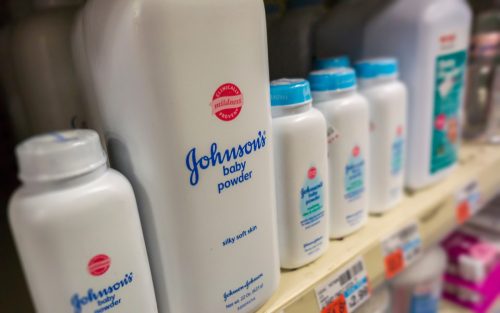
If you use baby powder to keep your nether regions fresh, you might want to reconsider. A 2010 study published in the journal Cancer Epidemiology, Biomarkers & Prevention found that using the product—also called talcum powder—can increase a woman’s risk of endometrial cancer by 24 percent when used on the perineal area, or the area surrounding the genitalia.
25
Using makeup that contains parabens

Check the labels next time you do your makeup: Research published in the Journal of Applied Toxicology showed that parabens—chemical compounds used as preservatives in a countless number of makeup and skincare products—are easily absorbed through the skin and can cause a spike in the growth of breast cancer cells.
26
Living in a polluted area
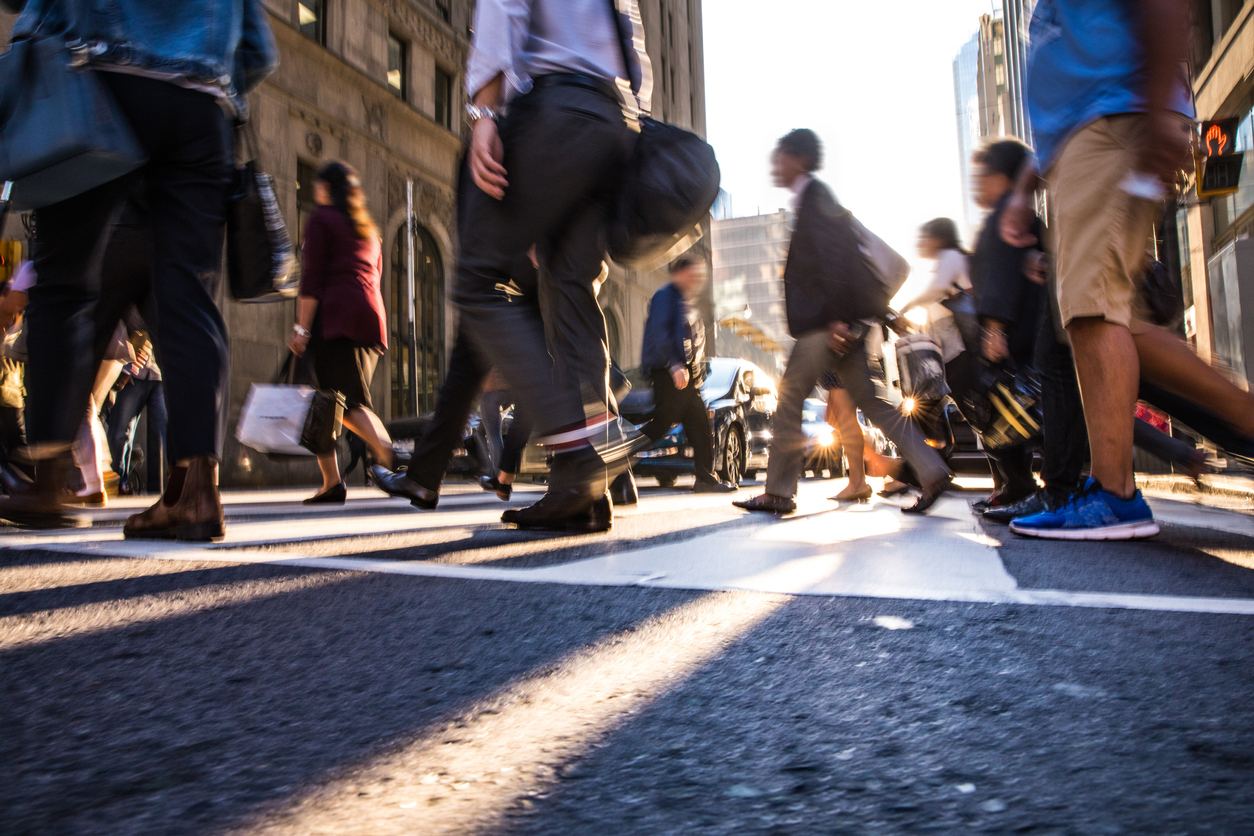
Even the simple act of breathing in a polluted area can increase your cancer risk. According to the World Health Organization as cited by the American Cancer Society, cancer-causing substances in the air caused 223,000 deaths from lung cancer in 2010 alone. In addition, they note, pollution has also been linked to an increased risk of bladder cancer.
27
Not wearing sunscreen
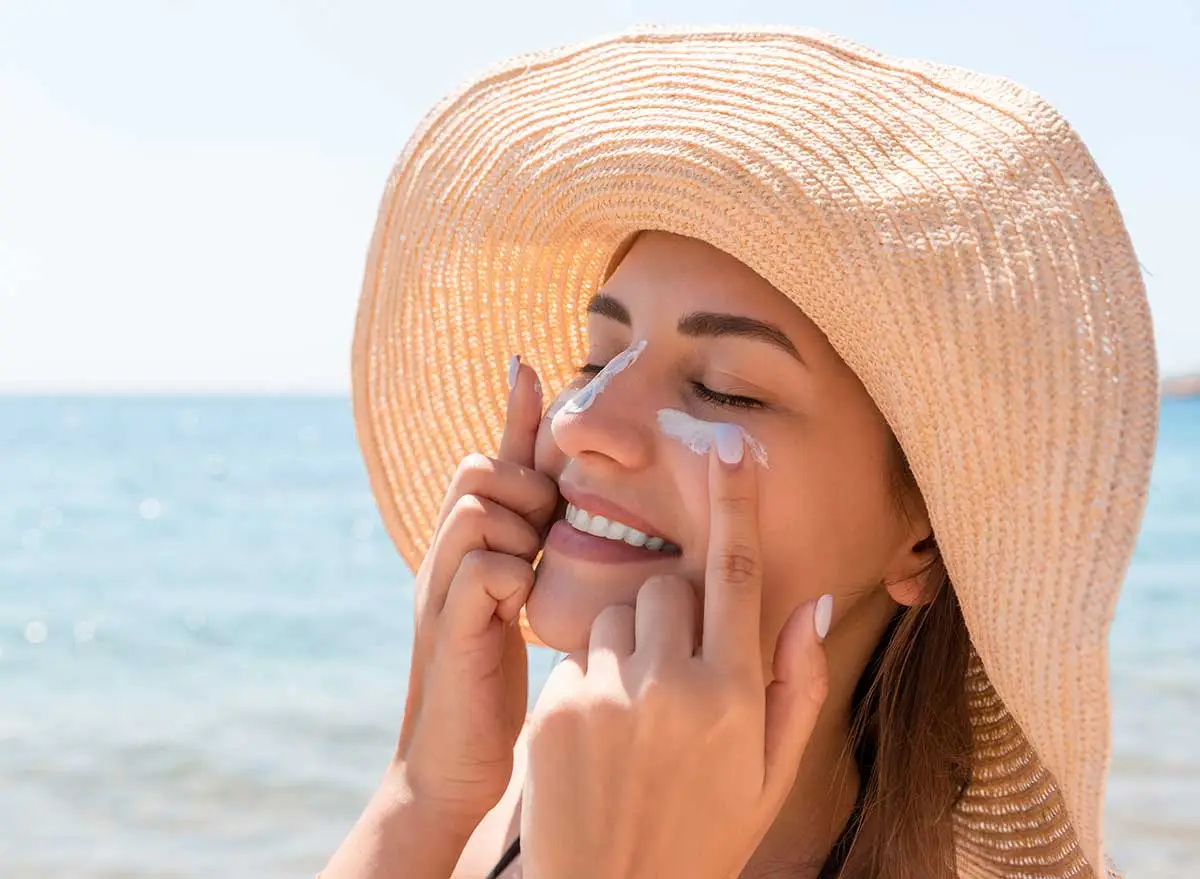
If you think you only need to wear sunscreen at the beach, or on a sunny day, think again. According to the Skin Cancer Foundation, you should slather on SPF year-round—no matter the season or the weather—to decrease your skin cancer risk.
28
Flying frequently

For many people, travel is one of life’s greatest joys. But there’s a downside to living a jet-setting lifestyle: Flying too often exposes passengers to high levels of UV radiation.
That means frequent flyers could be putting themselves at serious risk of skin cancer, according to a 2015 study published in JAMA Dermatology, which found that at 30,000 feet, the UV levels are twice that of those on the ground.
29
Tanning

According to the American Academy of Dermatology, even one trip to the tanning salon can spike your risk of developing melanoma by 20 percent, squamous cell carcinoma by close to 70 percent, and basal cell carcinoma by nearly 30 percent. So, for the sake of your health, it’s better to skip this venture altogether.
30
Sleeping with your phone next to your head

If you like falling asleep listening to your favorite podcast or music playlist, make sure to keep your phone as far away from your head as possible while you’re sleeping.
In 2017, the California Department of Public Health came out with guidelines to minimize people’s exposure to the radio-frequency energy cell phones release, which has been linked to brain cancer. Among their suggestions was to keep your phone away from your bed at night—which can also help you get a better night’s sleep.